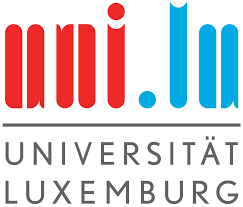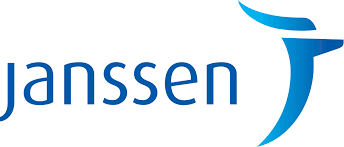
Nationality: Italian
Research topic: Quantum machine learning for reactivity
Project description: The generation of novel chemical matter with activity on relevant targets is the core business of the pharmaceutical industry. The ability to estimate the reactivity of such compounds would be valuable both for the initial chemical synthesis of these compounds and for assessing their stability under a variety of conditions. Quantum mechanical (QM) models enable simulations on reactivity and stability of these compounds through simulation of the bond-breaking and bond-forming events. However, these simulations come at a monumental computational expense. In recent years, quantum mechanical machine learning models have been developed which can provide accuracy comparable to quantum mechanical methods at a negligible computational cost. We will design and validate a neural network trained on reference QM data, which can then be used to predict reaction barriers and transition state conformations. This information can then be leveraged to inform chemistry decision-making.
Personal introduction: Early-stage researcher of the Advanced machine learning for Innovative Drug Discovery (AIDD) consortium, focussing on the development of quantum-informed machine learning applications for the prediction of reaction barriers and transition states structures.
My background is in theoretical physics, in particular I got my BSc from University of Florence and my MSc from University of Milan with a curriculum focused on quantum information, many-body theory and statistical mechanics. The master thesis project was done in collaboration with University of Turku (Finland), where I spend 4 months working on reinforcement learning applications to optimal control theory of quantum optical systems. This project ended with a publication on PRX Quantum which you can find here.
My current research is focused on developing machine learning applications that leverage quantum mechanical reference data in order to predict both reaction barriers and transition states geometries and features. My work goes in the direction of obtaining useful tools for chemistry decision-making, allowing for fast comprehension of the reaction paths of compounds.
Contact: GitHub LinkedIn Twitter GoogleScholar
Presentations at conferences and meetings
- Fallani, A., Arjona-Medina, J., Chernichenko, K., Nugmanov, R., Wegner, J.K., Tkatchenko, A. Atom-Level Quantum Pretraining Enhances the Spectral Perception of Molecular Graphs in Graphormer. At AIDD Workshop, ICANN 2024, Lugano. September 19th, 2024.
- Fallani, A. et al. Atom-level quantum pretraining enhances the spectral perception of molecular graphs in Graphormer. At ICML 2024, Vienna. July 21st - 27th, 2024.
- Fallani, A. Extending 3D generative modeling of molecules with quantum-mechanical properties" AIDD on-line seminar. March 8, 2023.
- Fallani, A., Medrano Sandonas, L. and Tkatchenko, A. Towards the inverse design of molecules with target quantum mechanical properties. In University of Luxembourg Department Workshop. June 2022.
- Fallani, A., Medrano Sandonas, L. and Tkatchenko, A. Towards the inverse design of molecules with target quantum mechanical properties. In APS March Meeting. March 2022.
- Fallani, A., Medrano Sandonas, L. and Tkatchenko, A. Towards the inverse design of molecules with target quantum mechanical properties. In DQML Hintertux joint conference. February 2022.
Articles and pre-prints
- Sarkis, M.; Fallani, A.; Tkatchenko, A. Modeling Non-Covalent Interatomic Interactions on a Photonic Quantum Computer. Physical Review Research. 2023. 10.1103/PhysRevResearch.5.043072
- Fallani, A., Nugmanov, R., Arjona-Medina, J., Wegner, J.K, Tkatchenko, A., Chernichenko, K. Pretraining Graph Transformers with Atom-in-a-Molecule Quantum Properties for Improved ADMET Modeling. J. Cheminformatics. 2025. https://doi.org/10.1186/s13321-025-00970-0
- Sandonas, L. R. M.; Van Rompaey, D.; Fallani, A.; Hilfiker, M.; Hahn, D.; Perez-Benito, L.; Verhoeven, J.; Tresadern, G.; Wegner, J.K.; Ceulemans, H.; Tkatchenko, A. Aquamarine: Quantum-Mechanical Exploration of Conformers and Solvent Effects in Large Drug-like Molecules. ChemRxiv. 2024. https://doi.org/10.26434/chemrxiv-2024-685qb
- Fallani, A., Sandonas, L. M., and Tkatchenko, A. Inverse mapping of quantum properties to structures for chemical space of small organic molecules. Nature Communications. 2024. https://doi.org/10.1038/s41467-024-50401-1
- Fallani, A., Arjona-Medina, J., Chernichenko, K., Nugmanov, R., Wegner, J.K., Tkatchenko, A. Atom-Level Quantum Pretraining Enhances the Spectral Perception of Molecular Graphs in Graphormer. In: Clevert, DA., Wand, M., Malinovská, K., Schmidhuber, J., Tetko, I.V. (eds) AI in Drug Discovery. ICANN 2024. Lecture Notes in Computer Science, vol 14894. Springer, Cham. 2024. https://doi.org/10.1007/978-3-031-72381-0_7
Organizations:
Université du Luxembourg, September 1st, 2021 - February 28th, 2023
Janssen Phamaceutica NV, Belgium, March 1st, 2023 - August 31th, 2024


Secondments:
Freie Universität Berlin, Germany, November 2022

